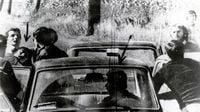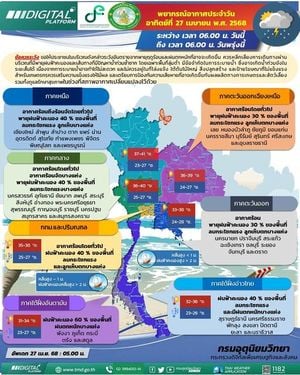Alberto Franceschini, a prominent figure in Italy's radical left and a co-founder of the notorious Brigate Rosse (Red Brigades), has passed away at the age of 78. His death occurred on April 11, 2025, but the news was only made public on April 26, 2025. Franceschini's legacy is intertwined with some of the most controversial episodes in Italy's history of political violence.
Born on October 26, 1947, in Reggio Emilia, Franceschini became politically active at a young age, joining the Italian Communist Youth Federation (Fgci) in 1962. By 1969, he had distanced himself from the party, seeking a more radical approach to activism. He was instrumental in establishing a collective known as "operai-studenti" (workers-students) in Milan, which aimed to unite various leftist factions.
Franceschini's notoriety grew when he, along with Renato Curcio and Mara Cagol, founded the Brigate Rosse in the early 1970s. This group sought to overthrow the Italian state through armed struggle, drawing inspiration from revolutionary movements worldwide. Their tactics included kidnappings and assassinations, which they believed were necessary to incite a proletarian revolution.
One of the most significant events in Franceschini's militant career was the kidnapping of Mario Sossi, a Genoese magistrate, on April 18, 1974. This marked a turning point for the Brigate Rosse, as it was the first time a magistrate had been abducted. The group demanded the release of imprisoned comrades in exchange for Sossi's freedom. However, the Italian government refused to concede to their demands, leading to a protracted and tense standoff.
Franceschini was arrested later that year, on September 8, 1974, alongside Curcio, due in part to intelligence work by Silvano Girotto, known as "Frate Mitra". The charges against him included the murder of two members of the Movimento Sociale Italiano (MSI) in Padova, as well as his involvement in the Sossi kidnapping. He was subsequently convicted and sentenced to 30 years in prison.
During his time in prison, Franceschini remained a significant figure among the incarcerated members of the Brigate Rosse. He participated in the internal politics of the group from behind bars, even as he began to question the effectiveness and morality of their violent tactics. In 1982, he publicly dissociated himself from the armed struggle, stating that he had broken all ties with his past.
His release from prison came on June 30, 1992, after serving nearly 18 years. The Italian court of appeal in Cagliari accepted his request for freedom, citing evidence that he had distanced himself from his former life of violence. Despite his release, Franceschini never collaborated with the authorities, maintaining a steadfast loyalty to his former comrades.
In the years following his release, Franceschini became a controversial figure, often expressing views that aligned with conspiracy theories regarding the Brigate Rosse and their historical context. He published a book titled "Mara, Renato e Io," which chronicled his experiences and reflections on the group's activities. He argued that the Brigate Rosse had been manipulated by external forces and that their actions were, in some ways, beyond their control.
Franceschini's insights into the radical left in Italy were often provocative. In a statement reflecting on the current state of leftist movements, he remarked, "The new Brigate Rosse are but a shadow of the past; they lack the popular support that we once had. Today, the only movement of dissent is peaceful and non-violent opposition to globalization." This perspective highlighted his belief in the changing landscape of political activism in Italy.
Throughout his life, Franceschini was characterized as a complex figure—both a committed revolutionary and a disillusioned veteran of political violence. He was known for his rebellious spirit and unyielding demeanor, which sometimes led to confrontations even in prison, such as an incident where he physically assaulted a judge during an interrogation.
As Italy continues to grapple with its tumultuous history of political extremism, Franceschini's death marks the end of an era for those who lived through the violent struggles of the 1970s and 1980s. His life story serves as a reminder of the intense ideological battles that have shaped modern Italy.
Franceschini's passing has sparked renewed discussions about the legacy of the Brigate Rosse and the broader implications of political violence in Italy. Many view his life as emblematic of the complexities surrounding revolutionary movements, where idealism often clashes with the harsh realities of violent action.
In reflecting on his legacy, it is clear that Franceschini's story is not just one of crime and punishment, but also of ideological evolution and the search for redemption. As Italy remembers him, it must also confront the lessons learned from a past that continues to resonate in contemporary society.





